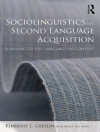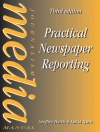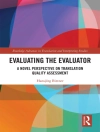The book testifies of the great tolerance of Cognitive Linguists towards internal variety within itself and towards external interaction with major linguistic subdisciplines. Internally, it opens up the broad variety of CL strands and the cognitive unity between convergent linguistic disciplines. Externally, it provides a wide overview of the connections between cognition and social, psychological, pragmatic, and discourse-oriented dimensions of language, which will make this book attractive to scholars from different persuasions. The book is thus expected to raise productive debate inside and outside the CL community. Furthermore, the book examines interdisciplinary connections from the point of view of the internal dynamics of CL research itself. CL is rapidly developing into different compatible frameworks with extensions into levels of linguistics description like discourse, pragmatics, and sociolinguistics among others that have only recently been taken into account in this orientation.
The book covers two general topics: (i) the relationship between the embodied nature of language, cultural models, and social action; (ii) the role of metaphor and metonymy in inferential activity and as generators of discourse ties. More specific topics are the nature and scope of constructional meaning, language variation and cultural models; discourse acts; the relationship between communication and cognition, the argumentative role of metaphor in discourse, the role of mental spaces in linguistic processing, and the role of empirical work in CL research. These features endow the book with internal unity and consistency while preserving the identity of each of the contributions therein.
İçerik tablosu
Francisco J. Ruiz de Mendoza and M. Sandra Peña
Introduction: As strong as its foundations, as wide as its scope
Section 1. Variety in Unity: Cognitive-Functional Linguistics and Different Routes within CL
Jan Nuyts Brothers in arms? On the relations between Cognitive and Functional Linguistics
René Dirven Major strands in Cognitive Linguistics
Ronald W. Langacker Construction Grammars: cognitive, radical, and less so
Section 2. A Usage-Based Cognitive Linguistics
Dirk Geeraerts Lectal variation and empirical data in Cognitive Linguistics
Enrique Bernárdez Social cognition: variation, language, and culture in a cognitive linguistic typology
Section 3. A Mental-Process-Oriented Cognitive Linguistics
Raymond W. Gibbs Embodied action in thought and language
Francisco J. Ruiz de Mendoza and M. Sandra Peña Cognitive operations and projection spaces
Section 4. A Discourse-Oriented Cognitive Linguistics
Gerard Steen Basic Discourse Acts. Towards a psychological theory of discourse segmentation
Antonio Barcelona Metonymic chains: metonymy in discourse
Klaus-Uwe Panther The role of conceptual metonymy in meaning construction
Brigitte Nerlich Tracking the fate of the metaphor silent spring in British environmental discourse
Yazar hakkında
Francisco J. Ruiz de Mendoza Ibáñez is Professor at the University of La Rioja, Spain.
M. Sandra Peña Cervel is Lecturer at the National University of Distance Education, Madrid, Spain.












